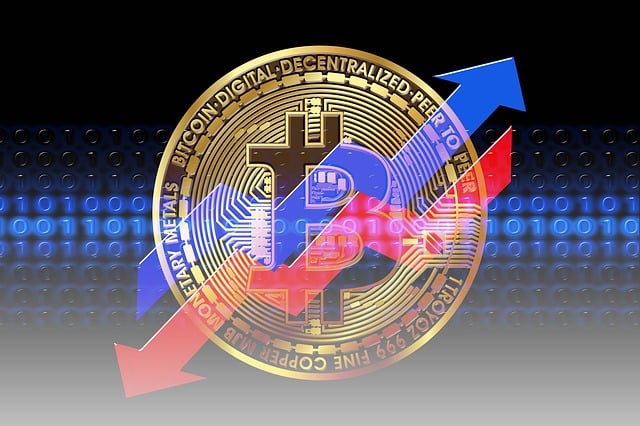France cryptocurrency enthusiasts have witnessed a rapid evolution in the landscape of digital currencies over the past few years. As the global financial system increasingly embraces blockchain technology, France stands out as a significant player in shaping the future of cryptocurrencies. From regulatory frameworks to innovative startups, France is making notable strides in the cryptocurrency domain. This article explores the current state of cryptocurrency in France, the regulatory environment, key players, and the potential future of digital currencies in the country.
Regulatory Environment
Historical Context
France’s journey with cryptocurrency began cautiously, with the government initially wary of the unregulated nature of digital currencies. Early on, the French authorities were concerned about the potential risks associated with cryptocurrencies, such as money laundering, fraud, and the financing of terrorism. However, as the technology evolved and its potential benefits became more apparent, the French government started to take a more proactive approach.
PACTE Law
A significant milestone in France’s regulatory approach to cryptocurrencies was the introduction of the PACTE Law (Plan d’Action pour la Croissance et la Transformation des Entreprises) in 2019. This comprehensive economic reform aimed to facilitate business growth and included specific provisions for the regulation of digital assets. Under the PACTE Law, the Autorité des Marchés Financiers (AMF) was given the authority to regulate Initial Coin Offerings (ICOs) and grant licenses to cryptocurrency service providers. This legal framework has provided a clearer path for cryptocurrency-related businesses to operate within France, ensuring greater transparency and security for investors.
EU Influence
As a member of the European Union, France’s cryptocurrency regulations are also influenced by broader EU directives. The Fifth Anti-Money Laundering Directive (5AMLD), which came into effect in 2020, requires cryptocurrency exchanges and wallet providers to adhere to stricter KYC (Know Your Customer) and AML (Anti-Money Laundering) regulations. France has been an active participant in shaping these EU policies, aiming to balance innovation with security and consumer protection.
Key Players in the French Cryptocurrency Ecosystem
Ledger
One of the most prominent names in the French cryptocurrency scene is Ledger, a company specializing in secure hardware wallets. Founded in 2014, Ledger has become a global leader in cryptocurrency security solutions, providing hardware wallets that protect users’ digital assets from hacking and theft. With headquarters in Paris, Ledger has played a crucial role in establishing France as a hub for cryptocurrency innovation.
Sorare
Another notable player is Sorare, a blockchain-based fantasy football platform that leverages non-fungible tokens (NFTs). Launched in 2019, Sorare has gained significant traction, partnering with major football clubs and attracting high-profile investors. The platform allows users to buy, sell, and trade digital player cards, which are represented as NFTs on the Ethereum blockchain. Sorare’s success showcases the potential for blockchain technology to revolutionize traditional industries such as sports and gaming.
Paymium
Paymium is one of the oldest Bitcoin exchanges in Europe, having been founded in 2011. Based in Paris, Paymium offers a secure platform for buying, selling, and storing Bitcoin. The company has been at the forefront of promoting Bitcoin adoption in France, providing educational resources and advocating for a balanced regulatory environment that fosters innovation while protecting consumers.
The Role of Traditional Financial Institutions
France’s traditional financial institutions have also started to explore the potential of cryptocurrencies and blockchain technology. Major banks such as BNP Paribas and Société Générale have been experimenting with blockchain for various applications, including cross-border payments, trade finance, and digital identity verification. These initiatives highlight the growing acceptance of blockchain technology within the mainstream financial sector and its potential to enhance efficiency and transparency.
Challenges and Opportunities of France Cryptocurrency
Regulatory Uncertainty
Despite the progress made, the regulatory environment for cryptocurrencies in France remains complex and sometimes uncertain. The rapid pace of technological innovation often outstrips the ability of regulators to keep up, leading to a degree of ambiguity that can be challenging for businesses and investors. Ongoing dialogue between the industry and regulators is essential to ensure that regulations remain relevant and supportive of innovation.
Adoption and Education of France Cryptocurrency
Another challenge is the general public’s understanding and adoption of cryptocurrencies. While awareness is growing, there is still a significant knowledge gap that needs to be addressed. Initiatives aimed at educating the public about the benefits and risks of cryptocurrencies, as well as providing resources for safe and secure usage, are crucial for widespread adoption.
Innovation and Investment of France Cryptocurrency
France’s robust startup ecosystem presents a significant opportunity for further innovation in the cryptocurrency space. The government’s support for tech startups, combined with a talented pool of developers and entrepreneurs, positions France well to become a leading hub for blockchain and cryptocurrency innovation. Increased investment in this sector, both from domestic and international sources, will be vital to sustaining growth and driving the development of new technologies and applications.
The Future of France Cryptocurrency
The future of cryptocurrency in France looks promising, with the country poised to play a significant role in the global digital currency landscape. The French government’s proactive stance on regulation, coupled with a thriving ecosystem of innovative startups, sets the stage for continued growth and development.
Central Bank Digital Currency (CBDC)
One of the most exciting developments on the horizon is the potential introduction of a Central Bank Digital Currency (CBDC) by the Banque de France. The central bank has been actively exploring the feasibility of a digital euro, conducting several pilot projects to test its implementation. A CBDC could revolutionize the financial system by providing a secure, efficient, and inclusive means of digital payment, further integrating cryptocurrencies into the mainstream economy.
Expanding Use Cases of France Cryptocurrency
As blockchain technology matures, we can expect to see an expanding array of use cases for cryptocurrencies beyond traditional financial transactions. Areas such as supply chain management, healthcare, real estate, and energy are ripe for disruption by blockchain, offering opportunities for increased efficiency, transparency, and security.
Global Influence
France’s leadership in cryptocurrency regulation and innovation can also have a broader global impact. By setting high standards for transparency, security, and consumer protection, France can influence international norms and practices, contributing to the establishment of a more stable and reliable global cryptocurrency ecosystem.
Conclusion of France Cryptocurrency
France cryptocurrency enthusiasts have much to look forward to as the country continues to navigate the digital revolution. With a supportive regulatory environment, a vibrant community of innovators, and growing mainstream acceptance, France is well-positioned to become a global leader in the cryptocurrency space. As the world moves towards a more digital future, France’s proactive approach to embracing and shaping the cryptocurrency landscape will undoubtedly play a crucial role in defining the financial systems of tomorrow.

















